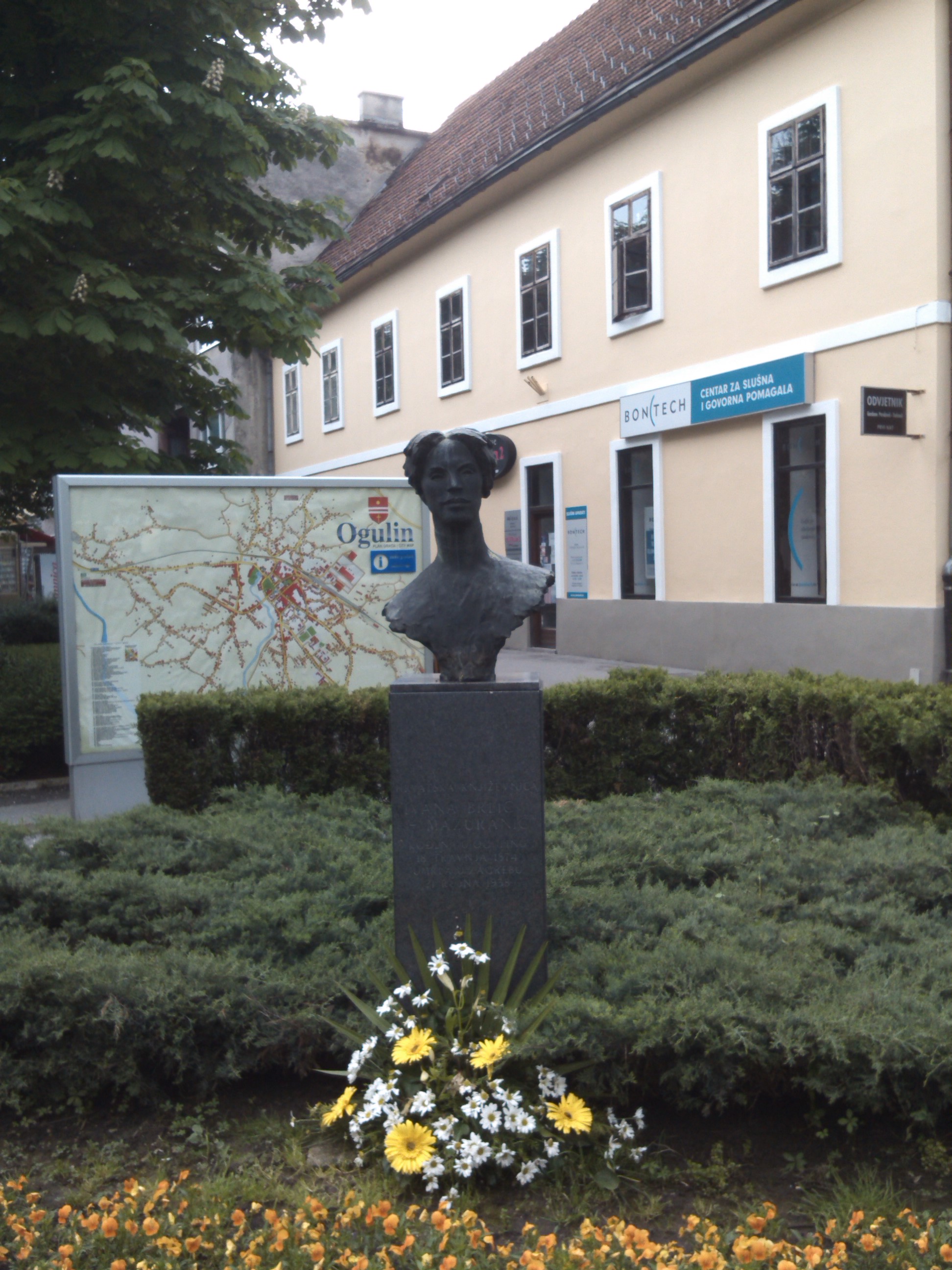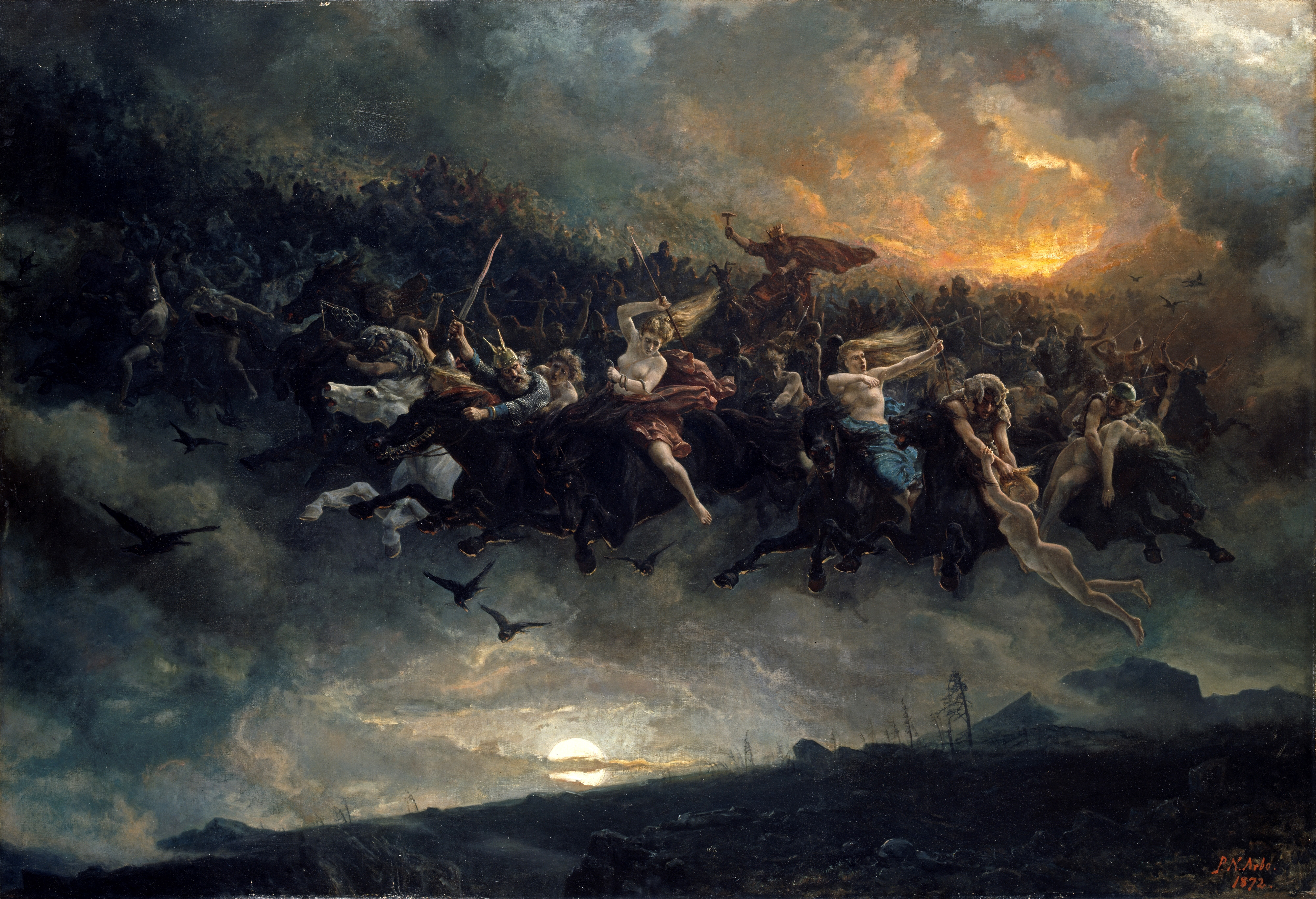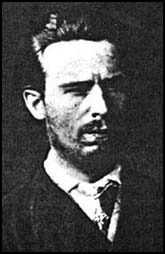|
Bies
Bies or bes (russian: бес ) is an evil spirit or demon in Slavic mythology. Under the influence of Christianity the word often became synonymous with chort. After the acceptance of Christianity the ''bies'' (same as chort) became identified with the devil, corresponding to the being referred to in Ancient Greek, as either ''daimon'' (δαίμων), ''daimónion'' or ''pneuma'' (πνεῦμα). For example, ''biesy'' (Russian plural of ''bies'') is used in the standard Russian translation of Mark 5:12, where we have ''the devils'' entering the swine in KJV. Compare to Ukrainian ''bisy'' or ''bisytysia'' and Polish ''zbiesić się'' (to go mad). In Slovenian (bes), Croatian (bijes) and Serbian (bes) the word means "rage", "fury". Equivalents in non-Slavic traditions In the mythology of Jah Hut people, one of the Orang Asli tribes living in Malaysia, there are beings called bès. This word generally refers to dangerous spirits living in the jungle and often attacking people, c ... [...More Info...] [...Related Items...] OR: [Wikipedia] [Google] [Baidu] |
The Tale Of The Priest And Of His Workman Balda
"The Tale of the Priest and of his Workman Balda" (russian: «Сказка о попе и о работнике его Балде», Skazka o pope i o rabotnike yego Balde) is a fairy tale in verse by Alexander Pushkin. Pushkin wrote the tale on September 13, 1830, while staying at Boldino. It is based on a Russian folk tale which Pushkin collected in Mikhaylovskoye early on. ''The Tale of the Priest and of his Workman Balda'' consists of 189 extremely varied lines that range from three to fourteen syllables but made to rhyme in couplets. In the summer of 1831, Pushkin read the tale to Nikolai Gogol who liked it a great deal. ''The Tale'' was first published posthumously by Vasily Zhukovsky in 1840 with considerable alterations due to censorship; the Priest character was replaced by a merchant. Plot summary The poem tells of a lazy (Russian Orthodox) priest who is wandering around a market looking for a cheap worker. There he meets Balda (Балда in Russian means a stupid ... [...More Info...] [...Related Items...] OR: [Wikipedia] [Google] [Baidu] |
Chort
A chort (Russian: чёрт, Belarusian and Ukrainian: чорт, Serbo-Croatian ''čort'' or ''črt'', Polish: ''czort'' and ''czart'', Czech and Slovak: ''čert'', Slovene: ''črt'') is an anthropomorphic malign spirit or demon in Slavic folk tradition. Chorts are often depicted identically to Christian devils, with horns, hooves, and a skinny tail. In Slavic mythology, a singular Chort is sometimes identified as a son of the god Chernobog and the goddess Mara. Likewise, in Ukraine mythology, Chorts were originally the priest of Chernobog. In folk Christianity, they are considered lesser minions of Satan. Compare to Russian sayings (curses) "тысяча чертей" ("''tysjača čertej''") – meaning thousands of demons; "чёрт побери" ("''čort poberi''") – meaning "be taken by the demon" (often used as an exclamation to express frustration or pain as in English "darn!", "rats!", "shit!", etc), the saying is often used as an acceptable version of cursing in E ... [...More Info...] [...Related Items...] OR: [Wikipedia] [Google] [Baidu] |
Сказка о попе рисунок Пушкина Crop
''Zvezda po imeni Solntse'' (russian: Звезда по имени Солнце, lit=A star called the Sun) is the seventh studio album by the Soviet rock band Kino, released on August 29, 1989. The album was the last album released before lead vocalist Viktor Tsoi's death. Recording history The recording of the draft version of the album took place at Georgy Guryanov, where the group's home studio was located. The recording was made at the same port studio where the previous album was made. The musicians decided to record the final version in a professional studio. For this, the director of the group, Yuri Belishkin, rented the studio of the singer Valery Leontiev in Moscow , where in December 1988 - January 1989 the final version of the album was recorded. Release history The album was first released in 1989 on cassette and reel-to-reel, sold at the band's concerts. It did not receive a proper release until 1993, when Moroz Records released it on vinyl. The 1993 re-re ... [...More Info...] [...Related Items...] OR: [Wikipedia] [Google] [Baidu] |
Croatian Tales Of Long Ago
''Croatian Tales of Long Ago'' ( hr, Priče iz davnine lit. "Stories from Ancient Times"), is a short story collection written by the acclaimed children's author Ivana Brlić-Mažuranić (sometimes spelled as "Ivana Berlić-Mažuranić" in English), originally published in 1916 in Zagreb by the Matica hrvatska publishing house. The collection is considered her masterpiece and it features a series of newly written fairy tales heavily inspired by motifs taken from ancient Slavic mythology of pre-Christian Croatia. ''Croatian Tales of Long Ago'' are seen as one of the most typical examples of her writing style which has been compared by literary critics to Hans Christian Andersen and J. R. R. Tolkien due to the way it combines original fantasy plots with folk mythology. The collection was translated into English by F.S. Copeland and first published in New York in 1922 by the Frederick A. Stokes Co. and in 1924 in London by the George Allen & Unwin publishing house, the same compan ... [...More Info...] [...Related Items...] OR: [Wikipedia] [Google] [Baidu] |
Ivana Brlić-Mažuranić
Ivana Brlić-Mažuranić (; 18 April 1874 – 21 September 1938) was a Croatian writer. Within her native land, as well as internationally, she has been praised as the best Croatian writer for children. Early life She was born on 18 April 1874 in Ogulin into a well-known Croatian family of Mažuranić. Her father Vladimir Mažuranić was a writer, lawyer and historian who wrote ''Prinosi za hrvatski pravno-povjestni rječnik'' (Croatian dictionary for history and law) in 1882. Her grandfather was the politician, the Ban of Croatia and poet Ivan Mažuranić, while her grandmother Aleksandra Demeter was the sister of well-known writer and one of keypersons of Croatian national revival movement, Dimitrija Demeter. Ivana was largely home-schooled. With the family she moved first to Karlovac, then to Jastrebarsko, and ultimately to Zagreb. Upon marriage to Vatroslav Brlić, a politician and a prominent lawyer in 1892, she moved to Brod na Savi (today Slavonski Brod) where she ente ... [...More Info...] [...Related Items...] OR: [Wikipedia] [Google] [Baidu] |
Demon
A demon is a malevolent supernatural entity. Historically, belief in demons, or stories about demons, occurs in religion, occultism, literature, fiction, mythology, and folklore; as well as in Media (communication), media such as comics, video games, movies, anime, and television series. Belief in demons probably goes back to the Paleolithic, Paleolithic age, stemming from humanity's fear of the unknown, the strange and the horrific. ''A Dictionary of Comparative Religion'' edited by S.G.F. Brandon 1970 In Religions of the ancient Near East, ancient Near Eastern religions and in the Abrahamic religions, including History of Judaism, early Judaism and ancient-medieval Christian demonology, a demon is considered a harmful spiritual entity which may cause Spirit possession, demonic possession, calling for an exorcism. Large portions of Jewish demonology, a key influence on Christianity and Islam, originated from a later form of Zoroastrianism, and was transferred to Judaism duri ... [...More Info...] [...Related Items...] OR: [Wikipedia] [Google] [Baidu] |
Wild Hunt
The Wild Hunt is a folklore motif (Motif E501 in Stith Thompson's Motif-Index of Folk-Literature) that occurs in the folklore of various northern European cultures. Wild Hunts typically involve a chase led by a mythological figure escorted by a ghostly or supernatural group of hunters engaged in pursuit. The leader of the hunt is often a named figure associated with Odin in Germanic legends, but may variously be a historical or legendary figure like Theodoric the Great, the Danish king , the Welsh psychopomp , biblical figures such as Herod, Cain, Gabriel, or the Devil, or an unidentified lost soul or spirit either male or female. The hunters are generally the souls of the dead or ghostly dogs, sometimes fairies, Valkyries, or elves. Seeing the Wild Hunt was thought to presage some catastrophe such as war or plague, or at best the death of the one who witnessed it. People encountering the Hunt might also be abducted to the underworld or the fairy kingdom. In some instances, i ... [...More Info...] [...Related Items...] OR: [Wikipedia] [Google] [Baidu] |
Fyodor Sologub
Fyodor Sologub (russian: Фёдор Сологу́б, born Fyodor Kuzmich Teternikov, russian: Фёдор Кузьми́ч Тете́рников, also known as Theodor Sologub; – 5 December 1927) was a Russian Symbolist poet, novelist, translator, playwright and essayist. He was the first writer to introduce the morbid, pessimistic elements characteristic of European '' fin de siècle'' literature and philosophy into Russian prose. Early life Sologub was born in St. Petersburg into the family of a poor tailor, Kuzma Afanasyevich Teternikov, who had been a serf in Poltava guberniya, the illegitimate son of a local landowner. When his father died of tuberculosis in 1867, his illiterate mother. Tatiana Semyonovna Teternikova, was forced to become a servant in the home of the aristocratic Agapov family, where Sologub and his younger sister Olga grew up. The family took an interest in the education of young Fyodor, sending him to a pedagogical institution where Sologub was a mod ... [...More Info...] [...Related Items...] OR: [Wikipedia] [Google] [Baidu] |
The Possessed (novel)
''Demons'' ( pre-reform Russian: ; post-reform rus, Бесы, Bésy, ˈbʲe.sɨ; sometimes also called ''The Possessed'' or ''The Devils'' is a novel by Fyodor Dostoevsky, first published in the journal ''The Russian Messenger'' in 1871–72. It is considered one of the four masterworks written by Dostoevsky after his return from Siberian exile, along with ''Crime and Punishment'' (1866), ''The Idiot'' (1869), and ''The Brothers Karamazov'' (1880). ''Demons'' is a social and political satire, a psychological drama, and large-scale tragedy. Joyce Carol Oates has described it as "Dostoevsky's most confused and violent novel, and his most satisfactorily 'tragic' work." According to Ronald Hingley, it is Dostoevsky's "greatest onslaught on Nihilism", and "one of humanity's most impressive achievements—perhaps even its supreme achievement—in the art of prose fiction." ''Demons'' is an allegory of the potentially catastrophic consequences of the political and moral nihilism that wer ... [...More Info...] [...Related Items...] OR: [Wikipedia] [Google] [Baidu] |
Fyodor Dostoevsky
Fyodor Mikhailovich Dostoevsky (, ; rus, Фёдор Михайлович Достоевский, Fyódor Mikháylovich Dostoyévskiy, p=ˈfʲɵdər mʲɪˈxajləvʲɪdʑ dəstɐˈjefskʲɪj, a=ru-Dostoevsky.ogg, links=yes; 11 November 18219 February 1881), sometimes transliterated as Dostoyevsky, was a Russian novelist, short story writer, essayist and journalist. Dostoevsky's literary works explore the human condition in the troubled political, social, and spiritual atmospheres of 19th-century Russia, and engage with a variety of philosophical and religious themes. His most acclaimed novels include '' Crime and Punishment'' (1866), '' The Idiot'' (1869), ''Demons'' (1872), and '' The Brothers Karamazov'' (1880). His 1864 novella, ''Notes from Underground'', is considered to be one of the first works of existentialist literature. Numerous literary critics regard him as one of the greatest novelists in all of world literature, as many of his works are considered highly i ... [...More Info...] [...Related Items...] OR: [Wikipedia] [Google] [Baidu] |
Spirit Possession
Spirit possession is an unusual or altered state of consciousness and associated behaviors purportedly caused by the control of a human body by spirits, ghosts, demons, or gods. The concept of spirit possession exists in many cultures and religions, including Buddhism, Christianity,Mark 5:9, Luke 8:30 Haitian Vodou, Hinduism, Islam, Wicca, and Southeast Asian, African, and Native American traditions. Depending on the cultural context in which it is found, possession may be considered voluntary or involuntary and may be considered to have beneficial or detrimental effects on the host. In a 1969 study funded by the National Institute of Mental Health, spirit possession beliefs were found to exist in 74% of a sample of 488 societies in all parts of the world, with the highest numbers of believing societies in Pacific cultures and the lowest incidence among Native Americans of both North and South America. As Pentecostal and Charismatic Christian churches move into both Afric ... [...More Info...] [...Related Items...] OR: [Wikipedia] [Google] [Baidu] |
Alexander Pushkin
Alexander Sergeyevich Pushkin (; rus, links=no, Александр Сергеевич ПушкинIn pre-Revolutionary script, his name was written ., r=Aleksandr Sergeyevich Pushkin, p=ɐlʲɪkˈsandr sʲɪrˈɡʲe(j)ɪvʲɪtɕ ˈpuʂkʲɪn, a=ru-Pushkin.ogg; ) was a Russian poet, playwright, and novelist of the Romantic era.Basker, Michael. Pushkin and Romanticism. In Ferber, Michael, ed., ''A Companion to European Romanticism''. Oxford: Blackwell, 2005. He is considered by many to be the greatest Russian poetShort biography from University of Virginia . Retrieved 24 November 2006.Allan Rei ... [...More Info...] [...Related Items...] OR: [Wikipedia] [Google] [Baidu] |







